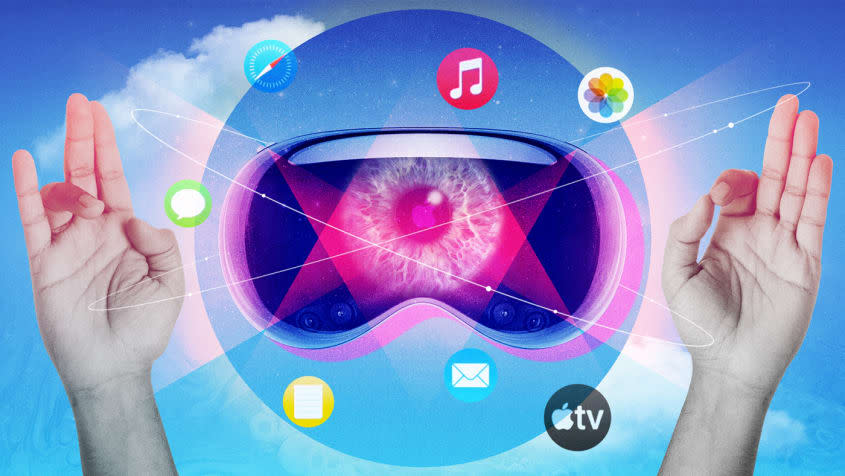Could Apple's $3,500 headset change the VR game?

Apple brought the tech world to a standstill on Monday after debuting a new mixed-reality headset that promises to revolutionize how we blend digital content with our physical world. Using a mix of VR and AR, the so-called "Vision Pro," which will retail at a whopping $3,500, turns users' surroundings into a customizable virtual desktop that's navigable using only their eyes, hands and voice. The device's shockingly-clear video passthrough will allow its wearers to scroll through the day's headlines, draw up a new design in Photoshop, or press play on their favorite movie while staying grounded in and aware of the space around them.
It's an impressive piece of technology on which Apple is betting its future, seemingly undeterred by its rivals or the lackluster adoption of other VR-centric market offerings, such as Mark Zuckerberg's metaverse. Will this luxurious gamble prove worth it? Or has the tech company effectively wagered its reputation on what will likely amount to nothing more than an expensive toy?
What are the commentators saying?
The Vision Pro "could be a big deal, and possibly even the first hint of a revolutionary new computing platform," said The New York Times' Kevin Roose. Sure, there are "plenty of reasons" it could flop, but those fail to recognize that Apple is Apple and "that it can, through sheer force of will, turn a niche product for nerds into a thing that everyone wants." Indeed, with the Vision Pro, Apple has done "what it always does" and created "a new wave of expectation for a device," added Esquire's Krista Jones. "All else shall follow."
For some potential users, however, the company still has to answer one big, important query, noted Stuart Miles at The Sunday Times: "What is this all for?" The Vision Pro is "truly groundbreaking and amazing, but it still somewhat suffers from the same burning question I've struggled with from all similar experiences," he said. "Why do I need it in my life?" For the purchase to feel worth it, "the device will need to be much more than a status symbol or a cool toy for developers," added Mark Spoonauer at Tom's Guide. "It will need to plant the flag for the next generation of mixed reality headsets and do so with a range of killer apps."
The headset is "not for everyone," said technology columnist Joanna Stern at The Wall Street Journal. "It's not even for most people." But where it seems to be the most helpful is in relation to "working" and "watching." To get consumers on board with this, "it's quite possible that by this time next year, there will be dozens of Apple Vision Pro headsets available at Apple Stores around the world for hands-on experiences," mused Techradar editor-in-chief Lance Ulanoff. "That may change a lot of minds and turn the Apple Vision Pro into the ultimate wishlist VR product." But whether or not it will truly capture a market "depends on how willing people are to part with thousands of dollars for what is clearly an extraordinary, premium-level VR experience."
What's next?
As far as profit goes, Apple isn't expecting much here, according to Bloomberg's Mark Gurman. In fact, the Vision Pro "could be one of the few Apple products to not provide a big margin as Apple doesn't want to completely price itself out of the market." And though it knows "sales will begin slow," the company believes this device "provides an Apple Watch-sized opportunity."
To that end, if you're one of the many unable to justify dropping $3K on a headset you're not even sure you'll use, a cheaper version that will cost the same as a "high-end Mac computer" is reportedly in development. If the rumors are true, that iteration should hit the market in 2025. Apple may also release its purportedly sleeker and more normal-looking augmented reality smart glasses, though it's estimated those won't be available until at least 2026, if ever.
You may also like
How the Bible became conservative book bans' unintended target
CNN CEO Chris Licht steps down after damaging Atlantic profile

